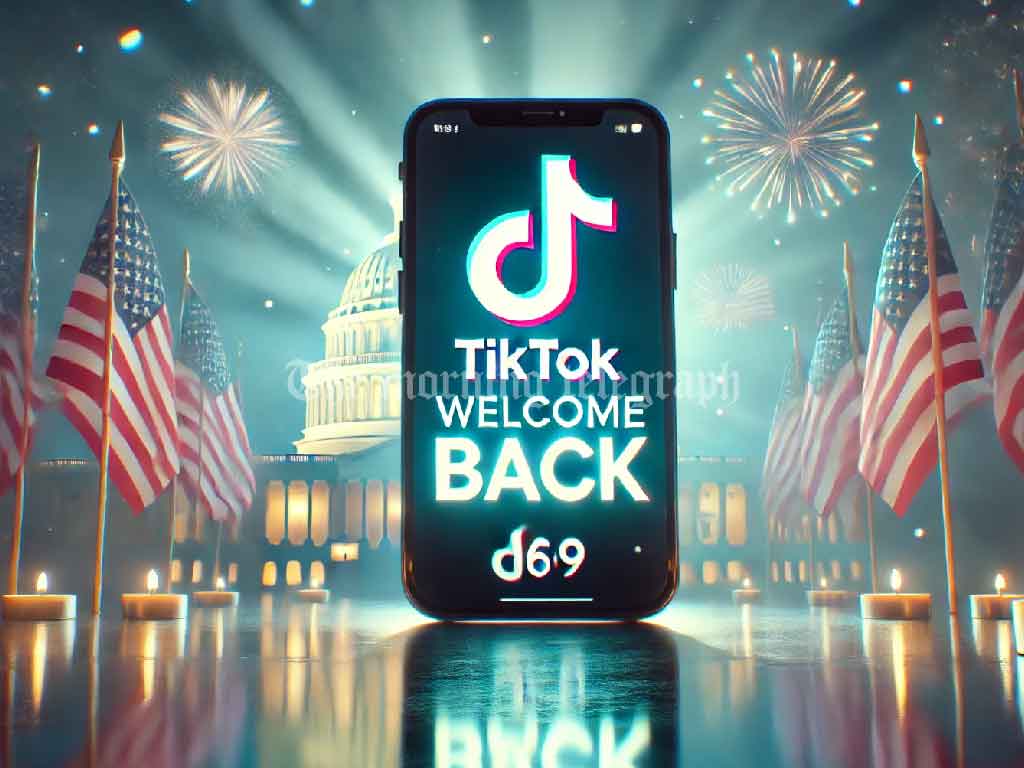
TikTok has restored its service to 170 million users in the United States after President-elect Donald Trump announced plans to delay the implementation of a controversial national security law that had effectively banned the platform. The decision comes after the Chinese-owned app went offline on Saturday evening when the law took effect, requiring TikTok to cease operations unless its parent company, ByteDance, divested its U.S. business.
Trump, who previously supported a ban on TikTok citing national security concerns, reversed course on Sunday by pledging to issue an executive order on his first day in office to extend the timeline for compliance. This move aims to provide TikTok additional time to negotiate a deal to address security concerns related to its ownership and data practices.
Following Trump’s announcement, TikTok began restoring access to its users, issuing a pop-up message that thanked the president-elect by name. In a statement, TikTok expressed appreciation for Trump’s intervention, calling it a step toward resolving the situation. The company also confirmed that its CEO, Shou Chew, would attend Trump’s inauguration.
The now-delayed law, passed with bipartisan support in April and upheld unanimously by the Supreme Court, required ByteDance to sell its U.S. operations or face a ban. Lawmakers cited concerns over TikTok’s potential to share vast amounts of user data with the Chinese government and its algorithm’s susceptibility to manipulation. TikTok had contested the law in court, arguing that it violated free speech protections for its users.
Despite Trump’s executive order, legal experts warn that his decision to delay the ban may face significant challenges. Solicitor General Elizabeth Prelogar, representing the Biden administration during the Supreme Court hearings, emphasized that executive orders cannot override laws retroactively. While the law includes a provision allowing a 90-day postponement if substantial progress is made toward compliance, it remains unclear whether TikTok has met these conditions.
The decision has exposed divisions within Trump’s Republican Party. Senate Intelligence Committee Chair Tom Cotton criticized the move, warning that companies assisting TikTok could face “ruinous liability.” Meanwhile, Trump’s nominee for Secretary of State, Marco Rubio, who previously supported the ban, deferred to the president-elect’s authority, stating, “If I’m confirmed, I’ll work for the president.”
The situation is further complicated by potential state-level actions. Several states have filed lawsuits against TikTok, raising the possibility of localized bans even if the app remains operational nationally. Additionally, while TikTok’s app has returned to functionality, its availability on major app stores like Apple and Google is uncertain. These platforms had removed TikTok in anticipation of the ban.
Trump’s pledge to shield hosting companies and app stores from liability may provide some relief to third-party providers. However, questions remain about the legality of his executive order and its ability to resolve concerns raised by lawmakers and security agencies.
TikTok’s temporary shutdown and swift restoration highlight the app’s importance to millions of Americans, particularly as a platform for entertainment, communication, and political engagement. The app has become a vital tool for businesses and political campaigns, especially for reaching younger demographics.
While TikTok’s service has been restored, its long-term future in the United States remains uncertain. The platform faces ongoing scrutiny from lawmakers, security agencies, and courts. As negotiations continue, the outcome will have significant implications for U.S.-China relations, the tech industry, and the broader debate over digital privacy and national security.




